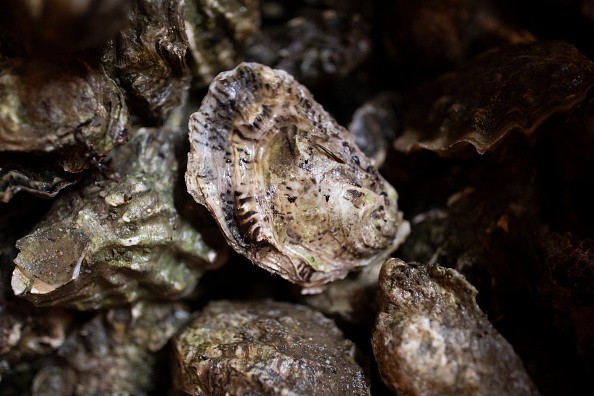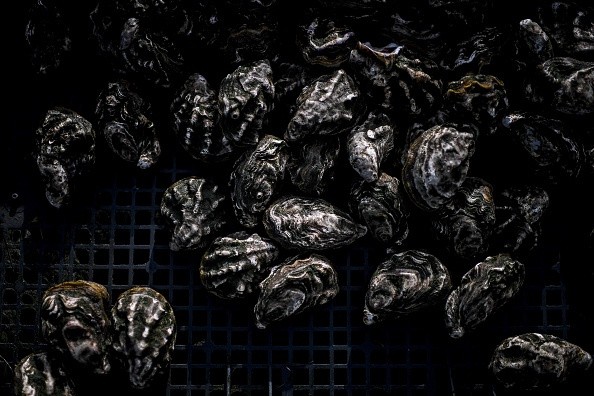Maryland environmental regulators usually warn the public before harvesting or eating polluted Chesapeake Bay oysters or other shellfish. But they failed to do so after a recent sewage leak in Southern Maryland, which sickened at least two dozen people.

What Might Have Caused the Contamination?
A record-breaking tide in the bay overwhelmed the sewage system on a small island in St. Mary's County, causing 25,000 gallons of garbage to spill into a Potomac River tributary on the 28th -30th of Oct.
According to a Facebook post, the water and sewer utility informed the public and the Maryland Department of the Environment.
It wasn't until two weeks later which happens to be on Nov. 13, that the state environmental department expressed concerns about the pollution, citing sickness from an event in Northern Virginia where oysters harveated from St. Mary's River were given to people.
Immediately after that, MDE spokesperson Jay Apperson said, the state stopped shellfish harvesting in the part of the river that is affected. But by then, oysters had been sold and eaten, leading to the sickness of over 20 individuals in Loudoun County, Va.
"To our knowledge, this is the first time something of this nature has happened," Apperson said in an email. "We are now working on improving our coordination within programs, through retraining and building redundancies into our process as a safeguard to prevent this from happening in the future."
Pollution of streams by sewage is frequent, especially after heavy rains. It is particularly problematic for shellfish harvesters since oysters are natural pollution filters and are typically eaten raw, according to 12ft.io.
It is "Inexcusable," said Potomac Riverkeeper Dean Naujoks, citing the state's lowest level of environmental enforcement action in 20 years, raising fears that polluters have no incentive to clean up their act.
Efforts to Stop Consumption of the Oysters
The St. Mary's commission, or Metcom, informed the public when the overflow started on Oct. 28 due to failed grinder pumps, a sort of sewage infrastructure. Waters at 16668 Piney Point Rd. on St. George Island should be avoided for 10 days, according to a Metcom Facebook post.
Erichsen said Metcom notified St. Mary's health authorities and the state environment agency. Apperson claims that the state agency did not notify the office entrusted with shutting down surrounding shellfish harvesting areas.
Officials from Virginia contacted the agency about the gap while investigating a foodborne disease epidemic, he said.
The diseases were connected to a winery that served Maryland oysters, according to George Khan of the Loudoun County Health Department. He claimed, the same oysters were sold somewhere else in the region, but he referred inquiries about their origins to Maryland regulators.
Brian Russell, one of the owners of Shore Thing said: "Obviously, we feel terrible that people were getting sick off of Maryland oysters."
When he learned of the sickness epidemic, Russell said he immediately contacted state health authorities who help the environment department investigate shellfish poisoning. Shore Thing handled and froze 10,000 oysters sold within a week after the sewage discharge.

Reported Sewage Overflows in Metcom's System
The main sewage collapse forced the closure of shellfish harvesting in January. This spilled up to 7,000 liters of sewage into local rivers. A considerable amount of last month's overflow looked to include substantially more sewage, but Erichsen noted that the sewage pollution was "very diluted."
Other sewage spills in the vicinity have occurred recently, in October 2019, July 2021, and August 2021, Apperson added.
Metcom was fined $8,500 for 12 sewage spills between September 2011 and June 2015, Apperson said. Since then, the state has not reviewed any alleged sewage spills in Metcom's system.
Related Article : Microplastics Discovered in Clams, Oysters in Oregon
For more more news, updates about oysters and similar topics don't forget to follow Nature World News!
© 2025 NatureWorldNews.com All rights reserved. Do not reproduce without permission.





